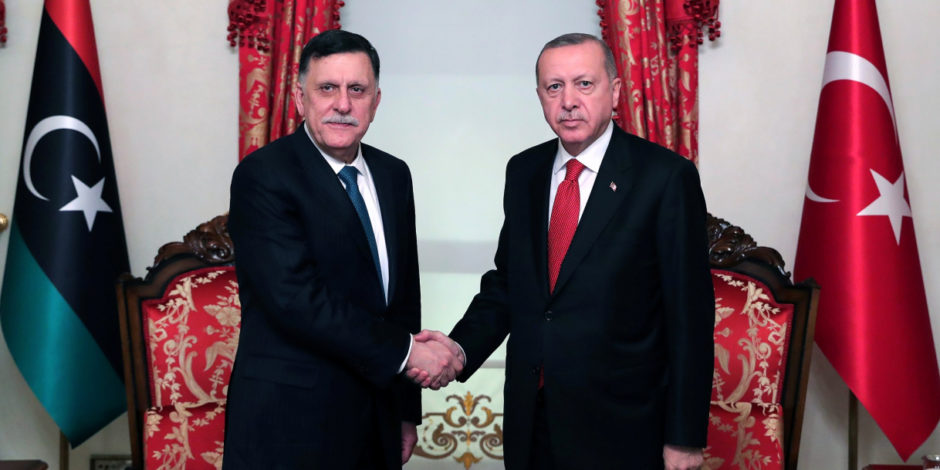
The civil war in Libya is escalating as mercenaries, supplied by Turkey, have been mobilised to support the Tripoli-based Government of National Accord (GNA).
The presence of foreign fighters in Libya is not new. There have been well documented instances of various states taking sides, but Turkey’s move is significant for the way in which it has made its support quite so visible.
Turkey and the GNA signed a deal in early December. This saw the two sides confirm a new maritime border in the Mediterranean Sea and agree to military co-operation. Significant gas resources have been found in the Eastern Mediterranean, offshore Egypt, Israel and Cyprus. Turkey disputes the maritime borders with Cyprus – and is engaging in its own exploration in the area – with the GNA deal in support of Istanbul’s operations.
The Syrian Observatory for Human Rights (SOHR), a UK-based monitoring group, quoted sources as saying that around 300 fighters have been moved from Syria to the Libyan capital of Tripoli. The SOHR said fighters had been offered up to $2,500 to go to Libya for three to six months. The total number of Turkish conscripts who are receiving training to go to Libya is around 900-1,000, the group said.
The Turkish government is expected to submit a bill approving military support for the GNA today. It is likely to be approved. Turkish President Recep Tayyip Erdoğan has said the country will supply non-combatants and advisors to the GNA.
The GNA is fighting for survival against the Libyan National Army (LNA), which is led by General Khalifa Haftar and is backed by the eastern-based House of Representatives (HoR). The LNA has pushed across the country and has been besieging Tripoli since April, but progress has been slow.
Supporting the LNA and Haftar are Russia, Egypt and the United Arab Emirates (UAE). In addition to Turkey, the GNA receives support from Qatar. Notionally the United Nations supports the GNA but this means little.
Russian President Vladimir Putin is due to visit Istanbul on January 8 to launch the TurkStream gas pipeline. This may set the stage for some change of support for the parties in Libya.
A statement from French President Emmanuel Macron said he had talked to Egyptian President Abdel Fattah al-Sisi on Libya. The two presidents expressed concerns about the “risks of a military escalation” and called for “all international and Libyan actors [to] exercise the utmost restraint”. Al-Sisi and Macron also talked about the Turkish-Libya maritime deal, agreeing that this was “contrary to the law of the sea”.
France is seen as broadly in support of the LNA and Haftar. Missiles found in an LNA camp in July were reported to have been built by the US and sold to France. While France has maintained that the missiles were intended to protect its forces in Libya, the discovery raised eyebrows about its allegiances in the country.
Whoever is involved, fighting is on the increase. The National Oil Corp. (NOC) warned that the Zawiya port may be forced to shut down following renewed air strikes around its facilities on December 28. There were three bombing raids within 48 hours, it said. Closing this port would take production offline at fields supplying it, including Sharara, potentially cutting Libyan output by more than 300,000 barrels per day.
